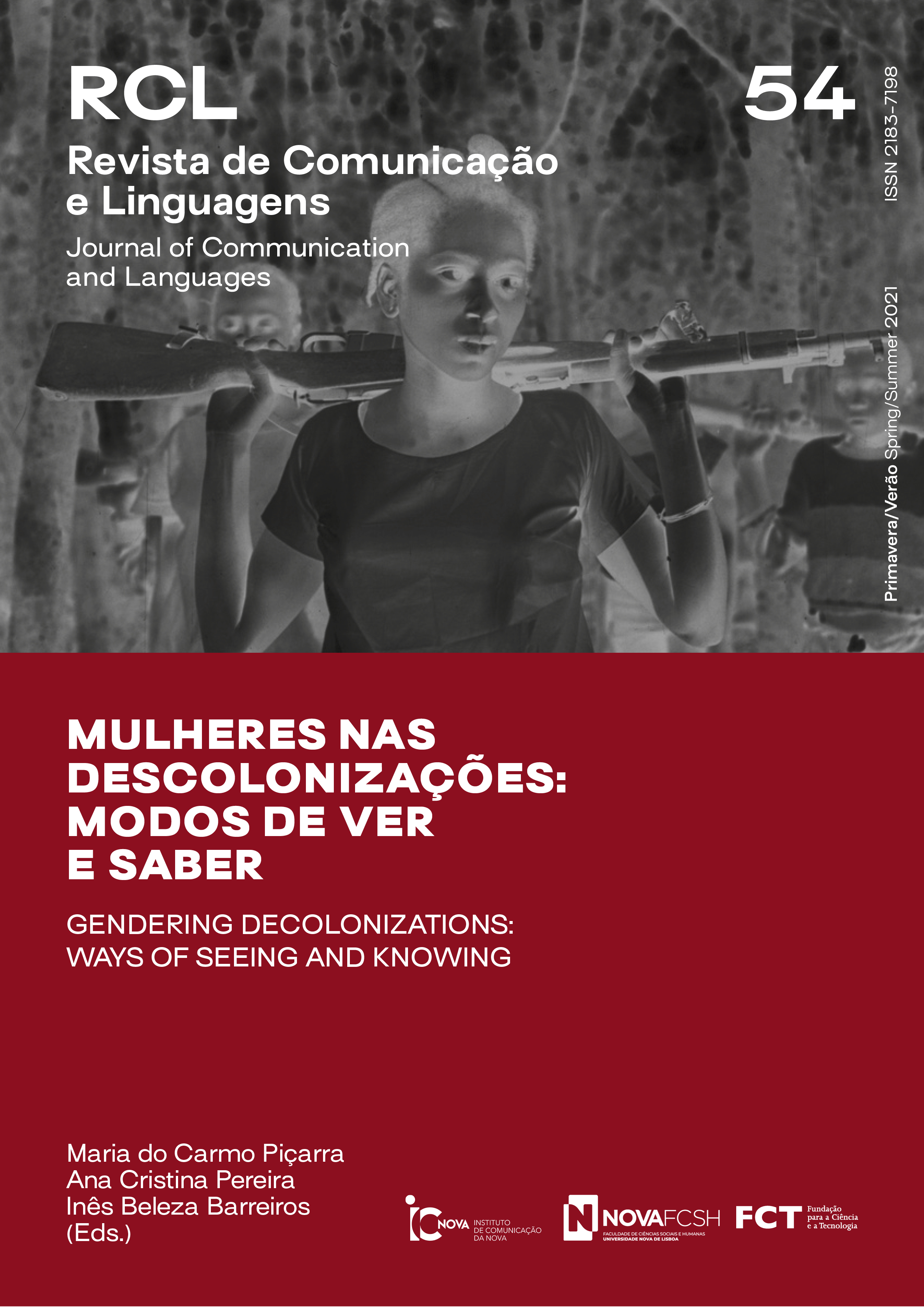Towards a caring gaze: aesthetics of decolonization in Sarah Maldoror’s Sambizanga
Résumé
The current artistic and academic interest in the archive of militant cinemas within the contemporary discourse on the urgency of decolonization is the starting point for this analysis of Sarah Maldoror’s first feature Sambizanga (1972). Set right on the brink of the beginning of the armed struggle for independence in Angola in 1961, the film focuses on a woman’s search for her imprisoned husband and “the time it takes to march” (Evan 1973). This essay aims at showing how Maldoror develops a unique way of seeing in Sambizanga that seems to have the potential to open up what Achille Mbembe (2017) calls “the dungeon of appearances,” by telling a story of the process of leaving the “dark night” of colonialism (Fanon 1963, Andrade and Ollivier 1971, Mbembe 2021). By reading the film’s decolonial aesthetics in dialogue with Fanon’s theory of decolonization, and with reference to Mbembe and Kara Keeling, I trace the aesthetic approach to decolonizing temporality and visibility, bringing to the fore the argument that Maldoror achieves nothing less than what I would like to call a caring gaze, which seems to extend the logic of representation and recognition (by international audiences), and instead can be seen as a work of repair.
Keywords: Sarah Maldoror; Frantz Fanon; decolonial aesthetics; care; militant cinema
Copyright (c) 2021 Revista de Comunicação e Linguagens

Ce travail est disponible sous licence Creative Commons Attribution - Pas d’Utilisation Commerciale 4.0 International.


